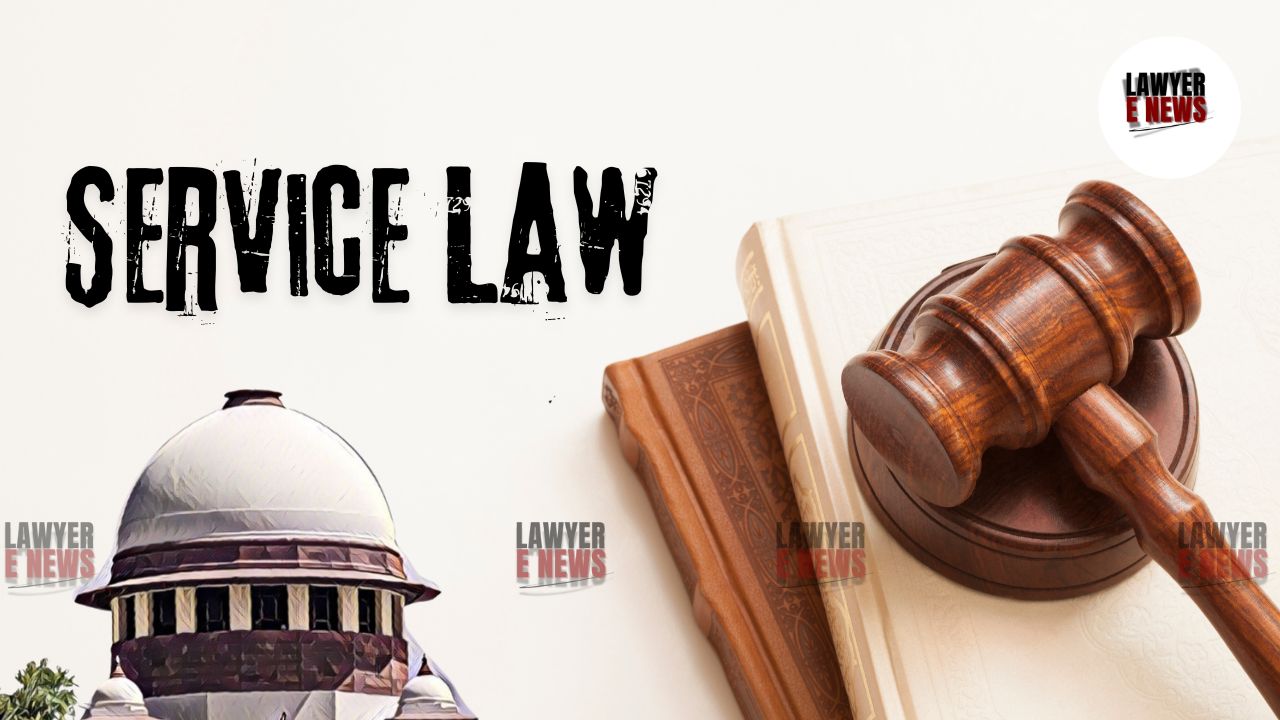-
by Admin
15 February 2026 5:35 AM



When recruitment rules or executive orders governing eligibility criteria exclude a specific requirement, courts cannot read such a requirement into the rules, as doing so would violate the principle of expressio unius est exclusio alterius - Supreme Court of India resolved a dispute regarding promotion eligibility in the Kerala Medical Education Services. The Court overturned the Kerala High Court’s decision that had imposed additional requirements for promotion to the post of Associate Professor, restoring the Tribunal's decision that upheld the promotion of Dr. Sharmad.
The Supreme Court ruled that the High Court erred in reading into the qualifications for the teaching cadre a requirement for "five years’ post-M.Ch. experience" as an Assistant Professor, when the applicable Government Order (G.O.) dated 07/04/2008 expressly excluded such a stipulation. Referring to the maxim expressio unius est exclusio alterius (the expression of one thing is the exclusion of another), the Court stated:
"The absence of the words 'after acquiring postgraduate degree' in the qualifications for teaching cadre posts demonstrates that this was a deliberate omission. Courts cannot impose requirements that the rule framers intentionally chose to exclude."
The case arose from a dispute between two doctors, Dr. Sharmad and Dr. Jyotish, over promotion to the post of Associate Professor in the Department of Neurosurgery under the Kerala Medical Education Service. The vacancy arose on November 13, 2012.
Dr. Sharmad, promoted as an Associate Professor on February 6, 2013, was challenged by Dr. Jyotish before the Kerala Administrative Tribunal. The Tribunal upheld the promotion, finding that the recruitment rules under G.O. dated 07/04/2008 did not mandate "post-M.Ch. experience" for eligibility. However, the Kerala High Court reversed this decision, holding that Rule 10(ab) of the Kerala State and Subordinate Services Rules (KS and SSR), 1958, required the experience to be gained after acquiring the qualification.
"G.O. 07/04/2008 is a Special Rule Superseding General Rules"
The Court emphasized that the G.O. dated 07/04/2008 was issued in supersession of all existing rules for recruitment to the Medical Education Service. It stated:
"The recruitment rules under G.O. dated 07/04/2008 qualify as special rules that govern eligibility criteria for promotions. Rule 10(ab) of the KS and SSR, being a general rule, is overridden by the specific provisions of the G.O."
"Deliberate Omission of Post-Qualification Experience in Teaching Cadre"
The Court noted that the recruitment rules for the administrative cadre explicitly required experience "after acquiring postgraduate degree," while this requirement was excluded for the teaching cadre. It stated:
"The deliberate omission of 'post-qualification experience' for teaching posts demonstrates the rule framers’ intent. It is not for the courts to rewrite or expand the scope of recruitment rules under the guise of interpretation."
"Expressio Unius Est Exclusio Alterius Applies"
Applying the principle of expressio unius est exclusio alterius, the Court held that the inclusion of the phrase "after acquiring postgraduate degree" in one context and its exclusion in another was intentional. It remarked:
"The express inclusion of the requirement for administrative cadre posts and its absence for teaching cadre posts indicates a clear legislative intent to exclude such a stipulation for teaching appointments."
"Reliance on G.O. Dated 14/12/2009 Is Justified"
The Court also addressed the High Court’s exclusion of G.O. dated 14/12/2009, which clarified that only "two years’ experience as Assistant Professor after acquiring a superspeciality degree" was required for promotion to Associate Professor for superspeciality teachers. The Court observed:
"G.O. dated 14/12/2009 complements and clarifies G.O. dated 07/04/2008. The High Court erred in excluding it from consideration."
The Supreme Court allowed Civil Appeal No. 13422 of 2024 and restored the Kerala Administrative Tribunal's decision dismissing the original application of Dr. Jyotish. It held that the High Court had wrongly imposed additional eligibility criteria not stipulated in the governing rules.
The Court also allowed Civil Appeal No. 13423 of 2024, which involved a related dispute over the interpretation of teaching experience required for promotion in Paediatrics. It held that "experience gained after acquiring postgraduate qualification" could not be read into the rules unless explicitly specified.
In both cases, the Court emphasized:
"The intention of the rule framers must be ascertained from the plain language of the rules. Courts must not impose additional qualifications or rewrite recruitment rules."
This ruling clarifies the principle that when recruitment rules or executive orders govern a field, courts cannot override them by applying general rules. It underscores the importance of adhering to the express language and intent of rule framers, particularly in matters of promotion and eligibility.
The decision also highlights the distinction between teaching and administrative cadres in medical education, emphasizing that recruitment rules must account for the unique demands of each cadre.
Date of Decision: January 10, 2025
